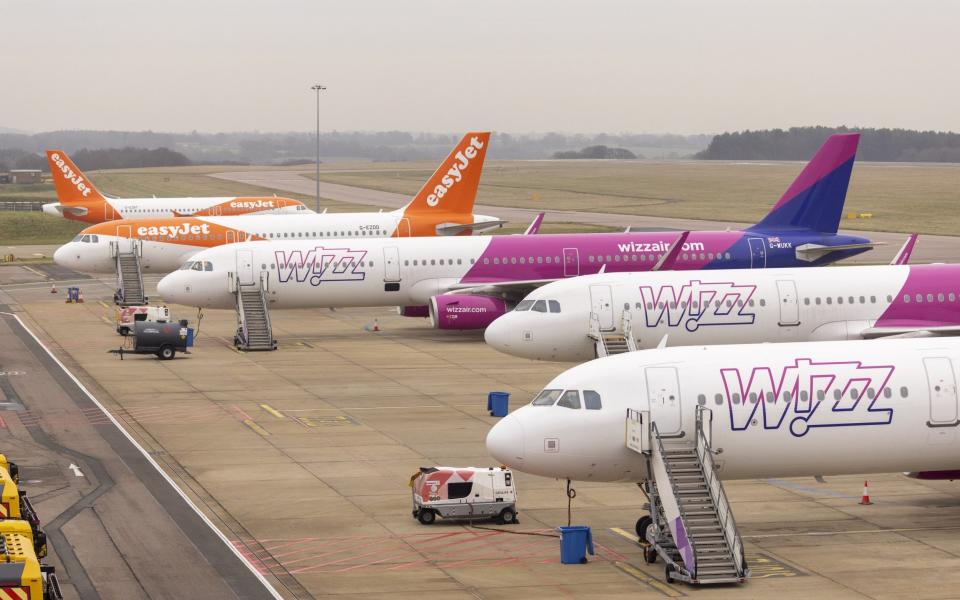Summer holiday flights at risk as Boeing crisis leads to aircraft shortage

Passengers are braced for a wave of flight cancellations this summer as the safety crisis at Boeing has left airlines scrambling to secure enough planes.
The warning has been made by Avia Solutions, the world’s largest aircraft leasing company, which has said European airlines are likely to slim down their schedules in the coming months.
Anticipated cancellations stem from a slowdown in deliveries across the airline sector in the wake of Boeing’s mid-air blowout, as safety concerns spark manufacturing delays at a time of soaring demand post-Covid.
Gediminas Ziemelis, chairman of Dublin-based Avia, said: “We’re seeing what I would call super-demand. The last time there was anything like this was when traffic rebounded after 9/11.
“Airlines are desperate for aircraft because of the production problems but the well is dry. I think in this dislocated system that cancellations are quite possible.”
Avia, which leases planes on short-term contracts, said it expects to deploy at least 80pc of its 212-strong fleet in Europe this summer as carriers race to solve shortfall issues.
As well as problems surrounding Boeing, which has been in turmoil ever since a door plug blew out of an Alaska Airlines 737 Max plane in January, airlines have also been impacted by manufacturer Pratt & Whitney recalling hundreds of engines for Airbus short-haul planes.
The resulting shortage of aircraft has meant carriers are racing to bring in emergency capacity, relying increasingly on the so-called wet-lease sector – which provides aircraft and crew for periods as short as a few months.
However, even with this support, Mr Ziemelis predicts that some airlines will fail to secure the capacity needed to maintain planned flights.
Avia’s research shows that of the 250 or so aircraft available across Europe for short-term rent, only eight are yet to be placed with airlines.
As a result, it is likely that airlines still short of aircraft will be forced to reduce their number of flights this summer.
Avia, which on Wednesday raised $300m in a bond issue in Dublin, said it has already agreed to lease aircraft to a number of carriers, including Wizz Air, which has taken seven jets after grounding about 45 planes following the Pratt & Whitney issue.
Lufthansa has also agreed to lease eight aircraft and British Airways four, Mr Ziemelis said.
Holiday giant TUI is also taking planes including the 737 Max, of which Avia has 14 in its fleet. Turkish Airlines will be the biggest single customer with more than 30 jets.
Supply chain issues at Airbus and Boeing are likely to sustain a “bubble” in demand until 2026, Mr Ziemelis said.
As well as serving European airlines, Avia – which was established in Lithuania 14 years ago – is also targeting new markets overseas, such as Australia, Brazil, Malaysia and Thailand.
This will allow the business to deploy its planes throughout the year rather than them standing idle over winter.
Ideally, Avia’s jets will spend six months in Europe and five in the southern hemisphere, with a month for maintenance.

 Yahoo Finance
Yahoo Finance 